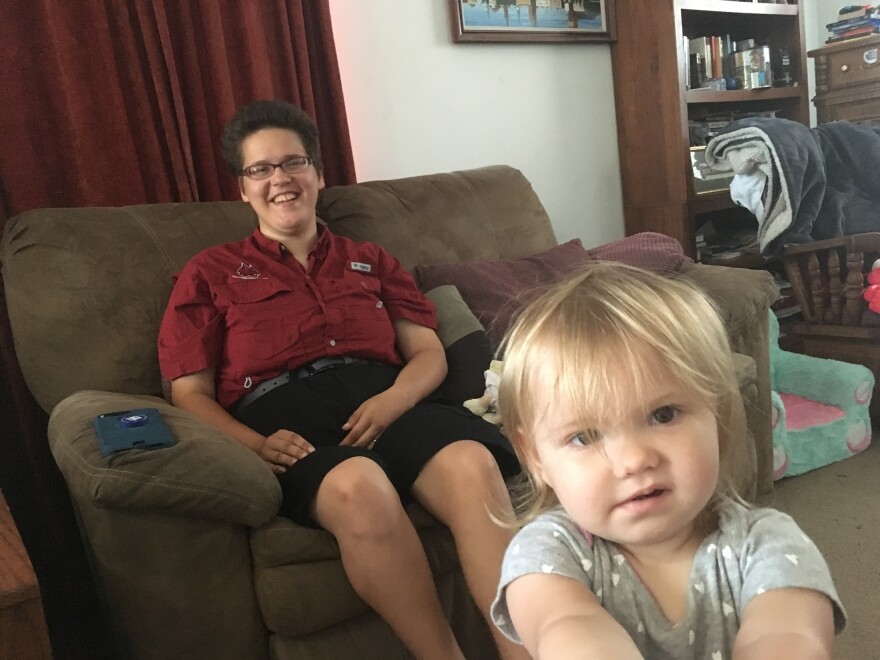This story originally aired on February 14, 2020.
Ivanonva Smith spent the first chunk of her life in an institutional orphanage in Soviet-controlled Latvia. She doesn’t remember having any friends or toys, or anything to do.
“I would just stare at a light and watch the little floaters, those little floaters you get in your eyes, and that was my entertainment,” she said.
Ivanova was born with intellectual and developmental disabilities. By the time she was adopted at age 5, she still didn’t speak. She says she had no understanding of concepts like “family,” and had to be taught how to play with toys.
“When I first got here, my sister gave me a stuffed bear, and I didn't know what to do with it," she said. "So I just gave it right back to her. My family had to help me learn how to play.”
Ivanova managed to learn English, weathered bullying and self-doubt, and graduated from high school. And by the time she graduated, she had an audacious idea: she wanted to attend college.
She was accepted at Central Washington University, something she never imagined that a person with disabilities like hers could do.
And that’s where, in the library, she first learned about the history of eugenics.
Eugenics is a pseudoscience of selective human breeding, which reached its heyday in the early 20th century. The idea is that people with “undesirable” traits — historically, people who weren’t white and able-bodied, and especially people with mental disabilities — should be prevented from reproducing.
“So I started reading these books. You know it’s really funny and ironic being in the 21st century an IDD student reading the books of people who would have had me in an institution and sterilized and no life of my own,” she said.
Ivanova, a history major, wrote her thesis on the history of eugenics, a movement that, had she been born a hundred years earlier, would have deemed her “defective.”
So Ivanonva had a lot on her mind when, newly married to her longtime sweetheart Ian, she became pregnant.
"I was so scared when I was pregnant. I had the nightmare idea that (my daughter) was going to be taken from me,” she said. “I tried to do a lot of precautions.”
Ivanova Smith joined Sound Effect host Gabriel Spitzer to tell her story, and to introduce her effervescent, one-and-a-half year-old daughter, Alexandra.
Ivanova Smith is an Advocate Faculty member at the University of Washington's program, Leadership Education in Neurodevelopmental and Related Disabilities.





